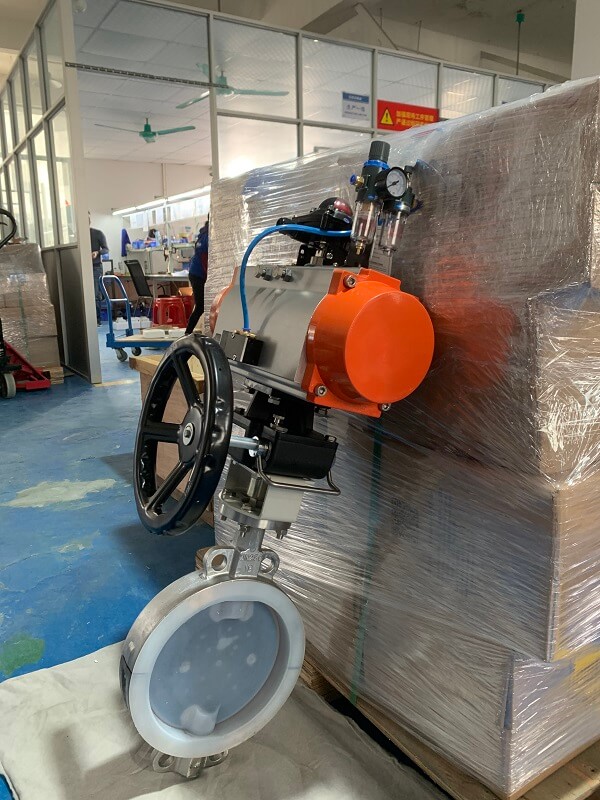In the case of corrosive medium, the Valve anti-corrosion is the most critical place of chemical equipment. If the metal material of Chemical Valve can not be selected correctly, it will damage the equipment if it is not careful, and even lead to accidents if it is heavy. According to relevant statistics, about 60% of the destruction of chemical equipment is caused by corrosion, so in the selection of chemical equipment should first pay attention to the scientific nature of selection. There is usually a misconception that stainless steel is a universal material, no matter what medium and environmental conditions are holding stainless steel, which is not correct, but also very dangerous. The following for some commonly used chemical media to talk about the main points of material selection:
1. Sulfuric Acid Medium
As one of strong corrosive media, sulfuric acid is an important industrial raw material with a wide range of uses. The corrosion resistance of Carbon Steel and cast iron is better when the concentration of sulfuric acid is above 80% and the temperature is below 80 °C, but it is not suitable for high-speed flowing sulfuric acid not suitable for pump valve material; ordinary stainless steel such as 304(0Cr18Ni9) , 316(0Cr18Ni12Mo2Ti) on sulfuric acid medium use is limited. Therefore, the delivery of sulfuric acid pump valve usually used high silicon cast iron (casting and processing difficulties) , high alloy stainless steel (no. 20 alloy) manufacturing. Fluoroplastics has good resistance to sulfuric acid, the use of lined fluorine pump valve (F46) is a more economical choice. If the pressure is too large, temperature rise, the point of use of the plastic valve was impacted, it can only choose more expensive ceramic ball valve.
2. Hydrochloric Acid Medium
Most metal materials are not resistant to hydrochloric acid corrosion (including various stainless steel materials) , high ferrosilicon containing molybdenum can only be used for 50 °C, 30% hydrochloric acid. In contrast to metallic materials, most non-metallic materials have good corrosion resistance to hydrochloric acid, so lined rubber pumps and plastic pumps (such as polypropylene, fluoroplastics) are the best choice for the transport of hydrochloric acid. But such a medium if the temperature is more than 150 °C, or the pressure is more than 16 kg, any plastic (including polypropylene, fluorine plastic or even polytetrafluoroethylene) will not be competent, and there is no ideal valve on the market. However, you can try the new ceramic ball valve, the advantages of this valve is self-lubricating, torque is small, aging, life is much longer than the general valve, the disadvantages of it, the price is much higher than plastic valves.
3. Nitric Acid Medium
Most metals are destroyed by rapid corrosion in nitric acid. Stainless steel is the most widely used nitric acid resistant material. It has good corrosion resistance to nitric acid of all concentrations at room temperature It is worth mentioning that the corrosion resistance of stainless steel containing Molybdenum (such as 316L) to nitric acid is not only not better than ordinary stainless steel (such as 304,321) , sometimes even worse. For high temperature nitric acid, titanium and titanium alloys are usually used.
4. Acetic Acid Medium
It is one of the most corrosive organic acids, ordinary steel in all concentrations and temperatures of acetic acid will be serious corrosion, stainless steel is a good acetic acid resistant material, molybdenum containing stainless steel can also be applied to high temperature and dilute acetic acid steam. For high temperature and high concentration acetic acid or contains other corrosive medium and other demanding requirements, high alloy stainless steel or fluoroplastics pump can be selected.
Post time: Nov-25-2021





